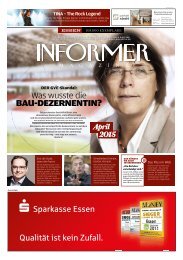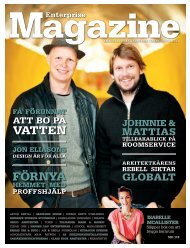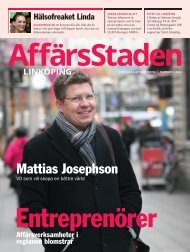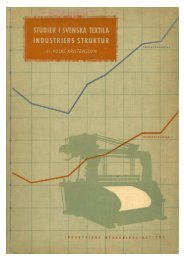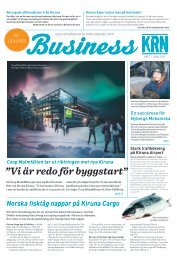Business Black Box
This year, celebrate the holidays with your loved ones at the Courtyard Marriott Downtown. Nestled at the center of Greenville’s dynamic Downtown District, you will be steps away from the charming United Community Bank Ice on Main, as well as the vibrant shops and restaurants along Main Street. As the streets come alive with the spirit of the season, join us and create memories that will last forever. Make your reservations today to add some magic to your holiday season.
This year, celebrate the holidays with your loved ones at the Courtyard Marriott Downtown.
Nestled at the center of Greenville’s dynamic Downtown District, you will be steps away
from the charming United Community Bank Ice on Main, as well as the vibrant shops
and restaurants along Main Street. As the streets come alive with the spirit of the season,
join us and create memories that will last forever.
Make your reservations today to add some magic to your holiday season.
Create successful ePaper yourself
Turn your PDF publications into a flip-book with our unique Google optimized e-Paper software.
TRAILBLAZER<br />
TRAILBLAZER.<br />
By Josh Overstreet<br />
Even at eighteen, Scott Harke knew<br />
what he had a desire to do. He even<br />
wrote a paper on it.<br />
“I came across this paper I wrote as<br />
a senior in high school for a scholarship,<br />
and it was about how we didn’t manage<br />
our resources sufficiently; how we<br />
aren’t good stewards of energy—and<br />
here I am at 50 doing what I wanted to<br />
do when I was 18,” he says.<br />
Today, Harke is the director for business<br />
development for Divergent Energy, a<br />
waste stream solutions company.<br />
After moving in 1981 from<br />
the Catskills of New York, and<br />
graduating with a bachelors in<br />
Industrial Management from Clemson<br />
University, he began looking for work.<br />
“At that point in ‘85, the economy<br />
was horrible. I figured I would go<br />
into banking and be an intermediary<br />
between banks and industry, but that<br />
didn’t work out,” he remembers.<br />
That did not pan out however, and<br />
due to prior experience working as a<br />
photographer for the alumni magazine<br />
and yearbook, Harke was hired by<br />
Clemson as a photographer.<br />
Realizing he would need to<br />
move on and continue his education,<br />
he participated in an intensive<br />
MBA program in Venice, Italy.<br />
Upon returning, he worked with a<br />
technology supplying company that<br />
transferred him to Denver, but, having<br />
grown fond of the Greenville era,<br />
Harke eventually returned.<br />
At that time, a friend from Clemson<br />
was working on start-ups and Harke<br />
joined with him. Thus, Divergent<br />
Energy was born.<br />
“As we started talking about all we<br />
could do with food waste and other<br />
waste streams, we decided Divergent<br />
Energy was the right place to start<br />
developing these solutions.”<br />
Two and a half years later,<br />
Divergent Energy has acquired<br />
instillations and key accounts that<br />
have been very successful. One of the<br />
largest is the Culinary Institute of the<br />
Carolinas, where, after discovering<br />
the Institute goes through 25,000<br />
pounds of waste annually, Divergent<br />
provided solutions for diverting their<br />
waste streams—first installing a bulk<br />
densifier, which takes organic waste<br />
material and processes it into a more<br />
useful and compact product.<br />
“The material that comes out of<br />
the machine is super rich, so if you<br />
mix it into the soil, a little bit goes<br />
a long way. It can compost really<br />
quickly, it can be pelletized as a fuel<br />
source, and it can be used as an animal<br />
feed supplement.”<br />
The chefs who oversaw the running<br />
of the machine also began to notice<br />
trends. Students would be somewhat<br />
careless with what they were wasting;<br />
as now the chefs could oversee much<br />
of the waste going in, they were able<br />
to identify these areas and began to<br />
save more food waste just by being<br />
more observant.<br />
During this process, another<br />
by-product of this food waste was<br />
discovered. According to Harke, who<br />
notes that 85 percent of organic food<br />
waste is water. While maybe not useful<br />
for drinking, this water can be filtered<br />
into what is called “gray water” and is<br />
useful for cleaning, watering, and other<br />
utility type uses.<br />
“As we continue growing as a<br />
population, water will be an increasingly<br />
precious commodity,” says Harke, “So<br />
to be able to capture and repurpose it,<br />
has gotten a lot of people’s attention.”<br />
While the Culinary Institute is their<br />
biggest success to date, there are other<br />
avenues Divergent wants to work with.<br />
“School budgets aren’t getting any<br />
bigger and to be able to put a whole<br />
solution in place, the school becomes its<br />
own ecosystem.” By making schools selfsustaining<br />
ecosystems, we can provide<br />
three important benefits: environmental,<br />
economic, and educational.<br />
Additionally, because of the federal<br />
mandates on ethanol usage, Divergent is<br />
looking into being able to take “sweet<br />
water,” or sucrose-heavy water from<br />
organic waste, and distill it to make ethanol.<br />
“What you’re doing is taking trash…<br />
and creating an absolutely necessary<br />
commodity,” he says.<br />
Currently, Divergent Energy’s main<br />
business strategy is to come alongside<br />
businesses and other organizations and<br />
help them find other means in which<br />
they can remove their wastes.<br />
“I guess I’m just an unrepentant<br />
hippie,” says Harke. “It sounds corny,<br />
but what excites me every morning<br />
when I get up is that what we are doing<br />
can change the world and make it a<br />
better place.”<br />
But aside from the desire to change<br />
the world, Divergent Energy is still<br />
a money-making enterprise whose<br />
principles are also very mindful of<br />
the economics of recycling waste into<br />
useful commodity.<br />
“We don’t go to businesses and tell<br />
them to recycle just because it’s the<br />
right thing to do; we look at it from an<br />
economic standpoint.”<br />
With a few successful projects,<br />
Divergent Energy is focused on having<br />
conversations and building relationships<br />
to find ways in which they can partner<br />
with either institutions or other waste<br />
stream solution companies in order to<br />
provide the best solutions possible.<br />
“We want to be symbiotic, there<br />
are some instances were its beneficial<br />
for Divergent Energy to own that<br />
relationship, and there are others that let<br />
us be bolted on as part of your solution.”<br />
At the end of the day, Divergent<br />
Energy is working for the best possible<br />
solutions because when it comes to<br />
sustainability, everybody wins.<br />
“The native Americans believed you<br />
didn’t rule for yourself or for your kids,<br />
but for the seventh generation,” he says.<br />
For more from <strong>Business</strong> <strong>Black</strong> <strong>Box</strong> visit insideblackbox.com<br />
Q4 2013 // <strong>Business</strong> <strong>Black</strong> <strong>Box</strong><br />
51





